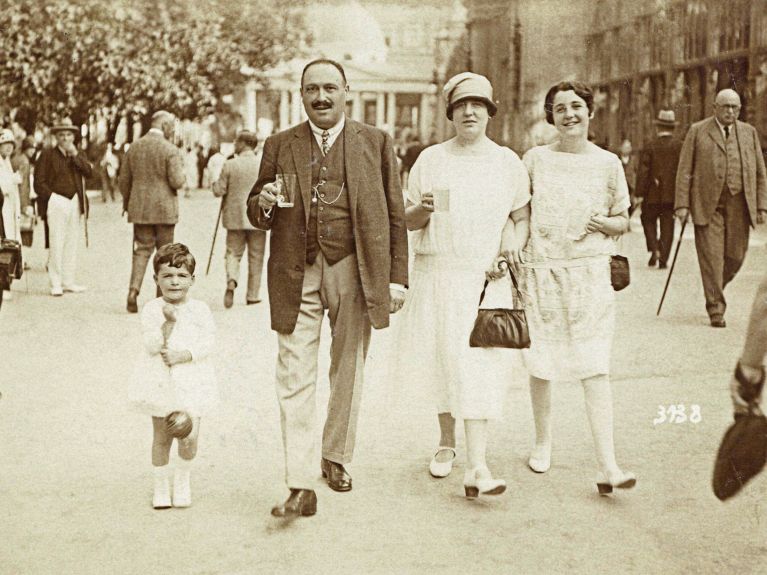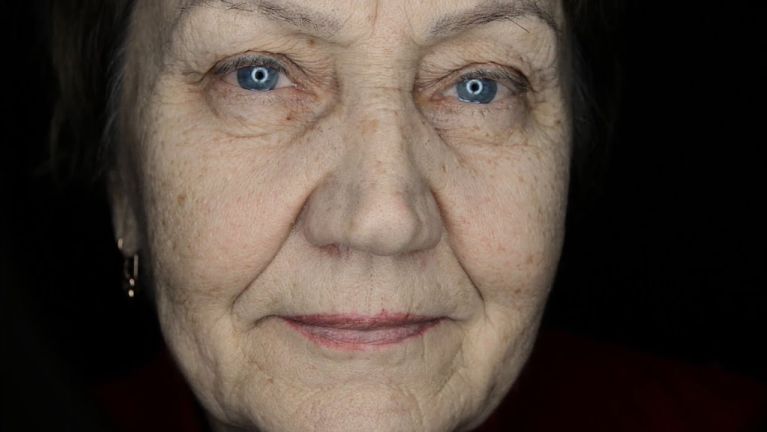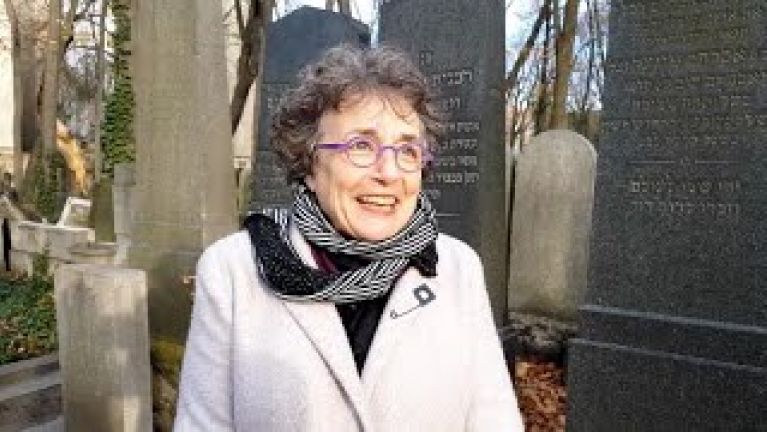Holocaust survivor takes a far-reaching decision
Stephen and his parents had to leave Nazi Germany in 1938. 70 years later, Stephen Wertheimer has decided to become a German national again and reclaimed the German citizenship for himself and his family.

For Lisa Wells, traveling through Germany is always a somewhat disorienting experience. On the one hand, the birthplace of her father is not a foreign country to her, there is a strong sense of belonging and familiarity. On the other hand, the New York based PR professional cannot help but sense "a weird disconnectedness". For example, when Wells talks to German colleagues and business contacts, the fact that their parents may come from the same town or region as her family is an easy conversation starter. "But when I tell them that my grandparents had to leave in 1938, a feeling of awkwardness sets in that is not easy to overcome."
Wells' father, Stephen Wertheimer, fled Ludwigsburg near Stuttgart with his parents in 1938, just weeks before the Reichspogromnacht. Stephen was only three years old. He went on to build a successful life and family in the New York area, where his three children and four grandchildren grew up.
Growing up in the USA, Germany was but a faint memory for Stephen, present mainly in the heavy Swabian dialect that was spoken by his grandmother in his childhood home. Otherwise it was a faraway land associated primarily with the horrors of the Holocaust and the disenfranchisement of his people.
Dieses YouTube-Video kann in einem neuen Tab abgespielt werden
YouTube öffnenThird party content
We use YouTube to embed content that may collect data about your activity. Please review the details and accept the service to see this content.
Open consent formNonetheless, when the opportunity arose in 2008, Stephen and all of his children and grandchildren did not hesitate to reclaim their German citizenship.
"The motivation was twofold," says Stephen, who has lived in South Florida since his wife retired in 1994. "First of all, it was the ultimate revenge." For him to become a German citizen was a way to demonstrate to the world that ultimately German Jews had triumphed over the Nazis. "We are still here. And they are not."
On the other hand, Stephen and his children thought it would be an amazing opportunity for the grandkids to get an education in Europe, travel freely and to be able to work. For example, Lisa's college-age son Ellis is currently spending a semester abroad in Spain, an undertaking that was greatly facilitated by his European passport.
Dieses YouTube-Video kann in einem neuen Tab abgespielt werden
YouTube öffnenThird party content
We use YouTube to embed content that may collect data about your activity. Please review the details and accept the service to see this content.
Open consent formEasy repatriation – thanks to Grandpa's German habits
The process of repatriation for his family, Stephen recalls, went fairly smoothly. The Wertheimers had to produce documentation that the family had held German citizenship for two generations. For Stephen, this was an easy task. "My father was German in outlook and education. Hence all the documentation was in place, all the paperwork was there."
The Wertheimer family first began forging connections to Germany again when the restitution claims of Stephen's father Ernst were approved by German courts in 1952. Before the war, Ernst Wertheimer had owned a successful business for "Drahtwaren" in Ludwigsburg – products made of wire such as bird cages. In 1952 the company was returned to the family that had by then built a livelihood as chicken farmers in New Jersey.
After 1952 Ernst Wertheimer began importing bird cages made in the family manufacturing plant in Ludwigsburg to the United States. When Ernst Wertheimer retired, the company was sold to an American importer.
Stephen, who had no interest in the family business, became a marketing professional, working primarily for non-profit organizations in the education sector. But the long-standing connections of his family to Germany contributed to a certain openness towards the new, post-war Germany, which other Jewish Americans may not have had. "I know a lot of people who would never buy a Mercedes or a VW. In our world, I think that is just silly."
Encounter with contemporary Germany
However, it was a trip to Ludwigsburg in 2002 that finally warmed Stephen to contemporary Germany. He had been invited by a local committee devoted to the preservation of the Jewish heritage of the town and region. The effort the people of Ludwigsburg made to commemorate the once sizeable Jewish population of the town as well as what had happened to them, deeply impressed Stephen Wertheimer.
On the town square, he says he found an "architecturally elegant" monument for the synagogue that had been destroyed in 1938. In the local independent book store, there was an entire wall devoted to the Jewish history of the region, including a scholarly work that mentioned his family. And the World War I memorial of Ludwigsburg once again bore the name of his uncle, who gave his life for Germany in that war, a name that had been erased in 1938.
"Germany appears to be the most resilient democracy we have these days"
So while the relationship of Stephen Wertheimer and his family to Germany, a country of which they are once again citizens, is still complex, it has very much normalized. Wertheimer praises the refugee policy of Angela Merkel and while he sees the rise of right-wing populism with concern, he considers it a global and not just a German problem. "In many ways, Germany appears to be the most resilient democracy we have these days."
Stephen's daughter Lisa agrees. "In the current political climate, it seems like a good idea to have the German citizenship." Jewish people, Lisa elaborates, have learned over many centuries to always have an escape route. And in the current world, Germany seems like a very attractive fall-back.



